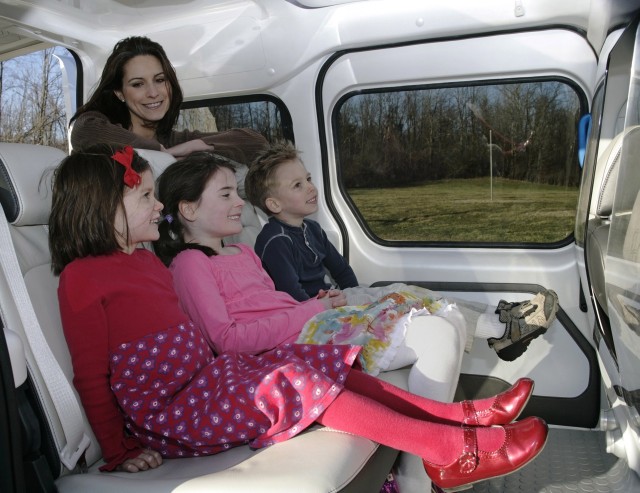When Fiat Chrysler Automobiles N.V. took the wraps off its new Chrysler Pacifica minivan last year, the automaker invited journalists from across the nation and around the world to test it.
Fiat Chrysler was justifiably proud of Pacifica, especially the plug-in gas-electric hybrid version, the only minivan that offers the advanced propulsion system, which minimizes gasoline consumption – an important characteristic for some consumers.
Chrysler pioneered minivans in the 1980s; the vehicle type soared in popularity and then steadily was joined by SUVs and crossovers as people carriers for American families. General Motors Co. and Ford Motor Co. no longer offer minivans, while FCA owns about half the U.S. market.
But some communities still favor minivans, especially ones where families often have more than just a few children. Oak Park, Michigan, home to a cluster of Orthodox Jewish congregations, is such a community; and my friend, Rabbi Ezra Cohen, proud father to eight, is the patriarch of such a family.

Because Rabbi Cohen, 36, has substantial hands-on experience driving his large family to local errands as well as to family gatherings in distant venues, I decided conduct a real-world test and put him behind the wheel of a Pacifica hybrid lent to me by FCA. As I hoped, Rabbi Cohen was an observant and astute judge of how the vehicle performed, providing feedback that I hope will be useful for the automaker.
His review of Pacifica’s seven-seat version (there is an eight-seater available, too) was generally positive. “It handled so much like a car, and was really comfortable to drive,” he said. “The automatic doors and sunroof were great features. I liked the cameras that seemed to give an aerial view. Very enjoyable.”
To test the minivan, Rabbi Cohen shlepped six of his children, age four to 11, with him on a shopping trip. The two who sat in the captain’s seats in the second row were able to play a game against one another on the two screens facing them. Unfortunately, he said, the three children behind them couldn’t see the screens well from their seats.
Pacifica’s screens might have worked better for all if they descended from its roof. Increasingly, vehicle occupants bring their own screens and phones for trips in the cars. In Orthodox Jewish families, children’s access to the Internet and video games is tightly monitored by their parents to guard against pornography and other negative influences. Hence, location of the screens that come with the vehicle are especially important to ensure access.
One additional suggestion: “Memory for seating positions of different drivers would be very convenient since it takes a couple of minutes to adjust without it because my wife likes a different seating position than I do,” said Rabbi Cohen.
For the time being, the Cohens are driving a 2008 Chevrolet Suburban with two extra jumpseats in the rear cabin area where luggage usually is stowed. But space is tight for family holidays to family members in Ohio and New Jersey. That’s why Rabbi Cohen is considering a Ford Transit Van for his next vehicle, which can seat up to fifteen – allowing extended family to join them on trips or errands.

Ford Transit Advertisement
“We rented a Transit recently, it was really nice because there’s room to breathe and, because it was the larger extended version, you can actually stand up inside,” he said.

